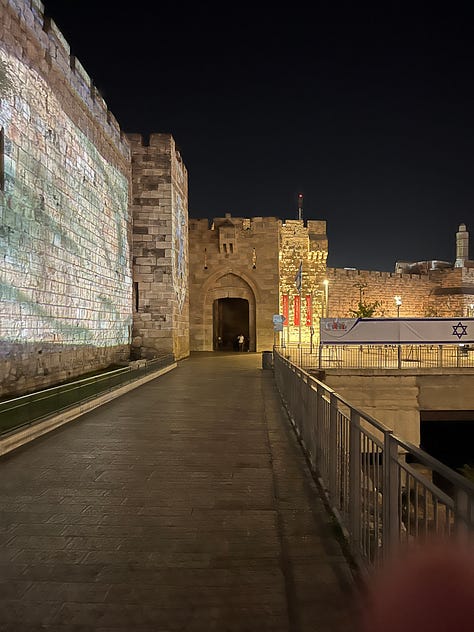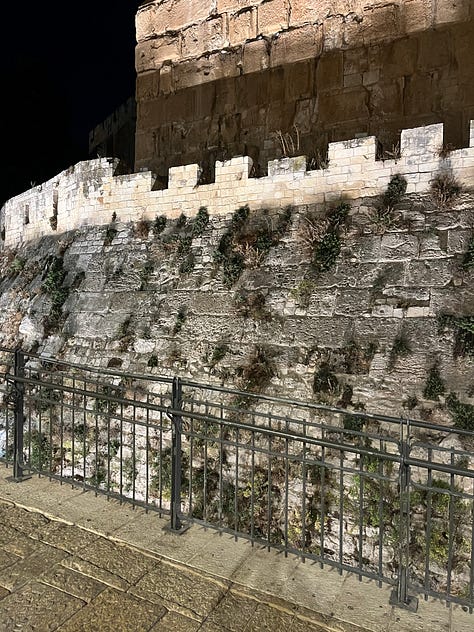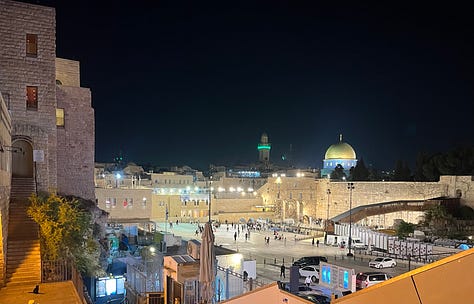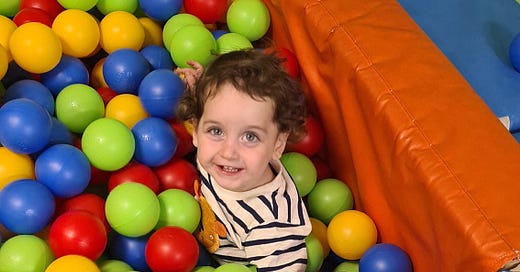Dear Healthy Jew,
Fear is an emotional experience of non-existence: losing stuff I have, not getting stuff I want. Unsurprisingly, fear is always of what might happen in the future: a time that doesn’t exist.
By listing our fears, as I suggested last week, we accept the human tendency to get drawn into non-existence, and allow God to control the course of life.
Because fear sends us to growth and God, it isn’t a mistake. As we learned two weeks ago, “praised is the one who is always afraid (Mishlei/Proverbs 28:14)”. We’re in trouble when we bask in complacency, covering our fears with fantasy faiths, anger, and control.
But fear isn’t either an ends in itself. After facing and letting go of fear, we must appreciate what does exist, right here, right now.
So after we list our fears, let’s list our gratitudes, just as I explained last week regarding fears.
Don’t try getting to the gratitude of all gratitudes. Discover many flavors of gratitude of many sizes, in no particular order, going with the free flow of your minds and hearts. As with fears, begin each gratitude with writing “I am grateful for/that…”.
Try to find around the same amount of gratitudes as fears, but don’t worry about getting it exact.
What counts as a gratitude? All the gifts and goodness of life itself, right here and now. Fear is the non-existent future; gratitude is what does exist in the present moment.
You can even be grateful for challenges and pain - even fear! - when you accept they are reality’s invitations to look outward and upward.
You might also notice fear and gratitude around the same subject. Maybe you're afraid of not having money in the future, and are grateful to have what you need today. Or you’re afraid of being hurt by antisemitism, and are grateful for the soldiers and policemen risking their lives to protect you.
Here are some examples of gratitude taken from my latest list.
I’m grateful for a beautiful Shabbos with my family.
I’m grateful for my wife and our adorable kids.
I’m grateful for teaching Torah and healthy Jewish living every night.
I’m grateful for writing Healthy Jew, for everyone who grows and appreciates it.
I’m grateful for reading a great book now about Shackleton and the Endurance.
I’m grateful to be healthy, for my family’s health.
I’m grateful for the army and police working so hard and risking their lives to protect us.
I’m grateful that I don’t need to change the world.
I’m grateful for warm weather so late in the season, that Bet Shemesh doesn’t get too cold.
I’m grateful to be Jewish and religious and learn Torah and live in Israel.
I’m grateful to have a wonderful apartment to live in.
I’m grateful to be young.
I’m grateful for willingness to write this list.
I’m grateful for my 5 senses, fingers, and toes.
I’m grateful for visiting Jerusalem and the Western Wall yesterday, and meeting friends there.



After you read your fears aloud, read your gratitudes aloud. Don’t analyze them. Just listen, and maybe share them with God.
Fears and gratitudes make a formidable team when they’re worked through together. By listing and letting go of fears, we look past the future that isn’t. Then with gratitude we open up to God and the gifts of life that are.
I regularly do this process when I feel afraid, unsettled, irritable, or pretty much any negative emotion. Each repetition strengthens my emotional and spiritual muscles, helping me become a less afraid and more grateful person. I’ve got a ways to go, so even after many years, I’m still at it.
Building a routine of fear-and-gratitude writing is great healthy Jewish living. Try it a few times, and let me know how it goes. Even better, share your experience in a comment.
Thank you for reading Healthy Jew.
Here are 2 great paths to continue the journey:
Also check out this intro and index to explore hundreds of posts about our 3 Healthy Jew topics: Wellness with Wisdom, Land of Life (Israel), and Sensible Spirituality.
Finally, always feel free to reach out here with any comments, questions, or complaints:
I look forward to hearing from you!
Be well,
Rabbi Shmuel Chaim Naiman









